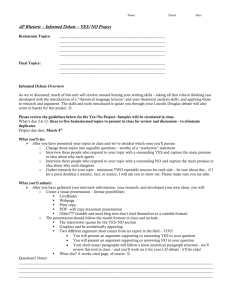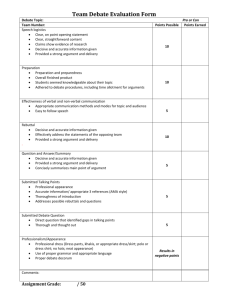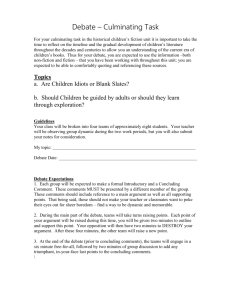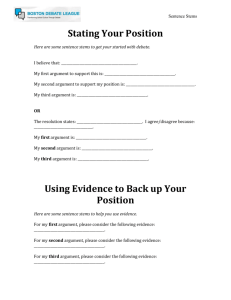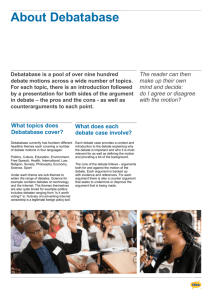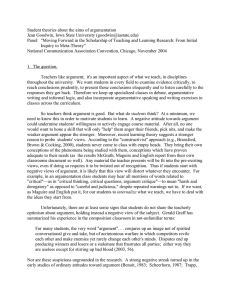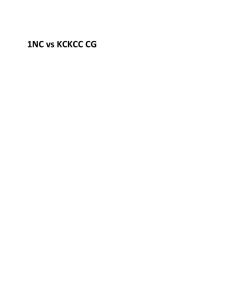Preparing for a Formal Debate
advertisement
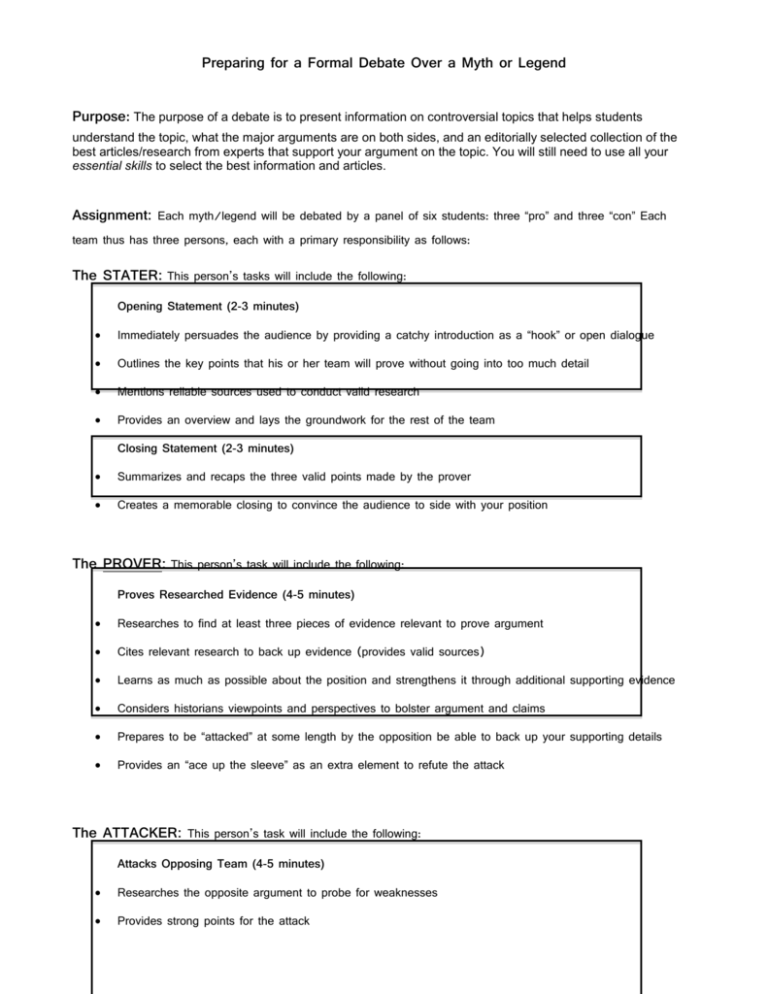
Preparing for a Formal Debate Over a Myth or Legend Purpose: The purpose of a debate is to present information on controversial topics that helps students understand the topic, what the major arguments are on both sides, and an editorially selected collection of the best articles/research from experts that support your argument on the topic. You will still need to use all your essential skills to select the best information and articles. Assignment: Each myth/legend will be debated by a panel of six students: three “pro” and three “con” Each team thus has three persons, each with a primary responsibility as follows: The STATER: This person’s tasks will include the following: Opening Statement (2-3 minutes) Immediately persuades the audience by providing a catchy introduction as a “hook” or open dialogue Outlines the key points that his or her team will prove without going into too much detail Mentions reliable sources used to conduct valid research Provides an overview and lays the groundwork for the rest of the team Closing Statement (2-3 minutes) Summarizes and recaps the three valid points made by the prover Creates a memorable closing to convince the audience to side with your position The PROVER: This person’s task will include the following: Proves Researched Evidence (4-5 minutes) Researches to find at least three pieces of evidence relevant to prove argument Cites relevant research to back up evidence (provides valid sources) Learns as much as possible about the position and strengthens it through additional supporting evidence Considers historians viewpoints and perspectives to bolster argument and claims Prepares to be “attacked” at some length by the opposition be able to back up your supporting details Provides an “ace up the sleeve” as an extra element to refute the attack The ATTACKER: This person’s task will include the following: Attacks Opposing Team (4-5 minutes) Researches the opposite argument to probe for weaknesses Provides strong points for the attack Probes the opposite team for weaknesses in counterargument Prepares to question data, disprove, counter, and use any rational method to discredit the opposition’s position or data Listens well, thinks quickly, ferrets out logical flaws and opinions that are disguised as facts, and questions faulty evidence from opposing team during the debate *Please remember that personal attacks are not acceptable and are considered in poor taste. The AUDIENCE: Students not involved in a debate are still a part of the situation. While listening to the debates, the audience will be responsible for constructing at least five questions for the debate panel as their debate concludes (on reverse side of hand out). Also, a reflection of each debate will be collected along with your constructed questions. *Any student who fails to show up for a scheduled debate will receive an automatic zero for that debate. Please remember that there are no correct answers in these debates. The important point of this exercise is to encourage you to think critically about the material and formulate your own argument based upon the evidence. Which position do you support and why?


